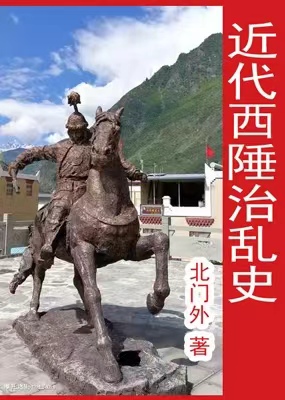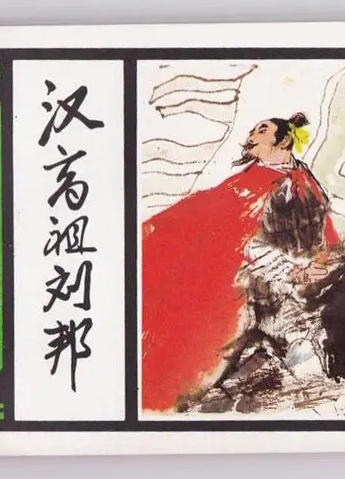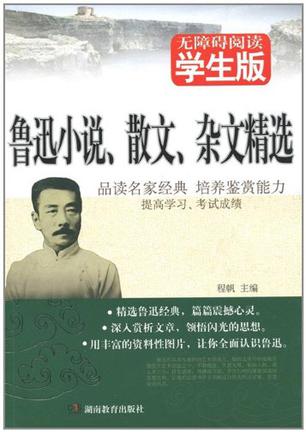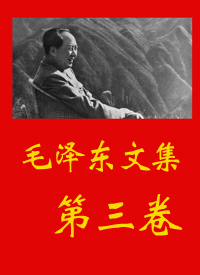NO; he was no Bœotian; he was no Epicurean; he could not say that in his heart, he followed the admirable advice of the great poet: “Pluck today’s flower, and give no thought to the morrow’s.”
He was passing through all of the most common and most vulgar phases of falling in love; he had moments of sadness, of anger, of wounded and maltreated self-esteem.
He tried to analyze1 his spiritual condition coldly, and he considered it best and most expedient2 to make an effort not to appear at Rafaela’s house for a long time.
“I must be active,” he said to himself. At other times his reason appealed to him: “Why not go to see her as I used to? What is it that I want? Do I want her to cease having a sweetheart she has already had? That would be stupid. We must accept things that have already been.”
At this, his wounded pride responded with fits of anger, obscuring his intelligence; and the pride generally came out victorious3.
Quentin did not appear at Rafaela’s house for some time. Alone, with nothing to occupy him, friendless; he was desperately4 bored. How the Andalusian spring[157] oppressed him! He wandered about from place to place, without plans, without an object, without a destination.
The sun inundated5 the silent, deserted6 streets; the sky, a pure, opaque7 blue, seemed something tangible—a huge turquoise8, or sapphire9 in which roofs and towers and terraces were embedded10.
Everything gave the impression of profound lethargy.... The houses: blue, yellow, pale rose, cream-coloured, all hermetically sealed, seemed deserted; the irrigated11 vestibules flowed with water; one smelt12 vaguely13 the odour of flowers, and a penetrating14 perfume of orange blossoms arose from the patios15 and gardens.
The plazas17, like white whirlpools of sunlight, were blinding with the reverberation18 of light against the walls. In the alleys19, tenebrous, narrow, shadowy, one felt a damp, cave-like cold.... Everywhere silence and solitude20 reigned21; in some lonely spot, a donkey, tied to a grating, remained motionless; a hungry dog scratched in a heap of refuse; or a frightened cat ran with tail erect22 until it disappeared in its hiding-place.
In the distance, the crowing of a cock rang out like a bugle23 call in the silent air; one heard the melancholy24 cry of the vendors25 of medicinal herbs; and through the deserted plazoletas, through the narrow and tortuous26 alleys, there rose the song of love and death that a grancero was singing as he rode along on his donkey.
In La Ribera, some vagabonds and gipsies were sunning themselves, while others played quoits; little children with brown skins ran about bare-legged, covered only by a scanty27 shirt; sunburned old women came to the windows and gratings; and along the white, the very white highway, which resembled a great chalk furrow28, there passed gallant29 horsemen, raising clouds of dust.[158]
The river wound peacefully along—blue at times, at times golden; wagons30 and herds32 passed slowly over the bridges—so slowly that from a distance they seemed motionless.
An oppressive calm, a tiresome33 somnolence34 weighed down upon the city; and in the midst of this calm, of this death-like silence, there sounded a bell here, another there—all extremely languid and sad....
At nightfall, the magic of the twilight35 touched the city and the distant landscape with gold—-‘d lights; splendid colours of extraordinary magnificence. The clouds became rosy37, scarlet38.... The country was tinged39 with gold, and the last rays of the sun set fire to the rocks and peaks of the mountain-tops.
In the streets, which were bathed with light, a narrow strip of shadow appeared upon the walks, which grew and widened until it covered the whole pavement. Then it slowly climbed the walls, reached the grated windows and the balconies, scaled the twisted eaves.... The sunlight completely disappeared from the street, and there only remained the last vestiges40 of its brilliancy upon the towers, the high look-outs, and the flaming windows....
The air grew diaphanous41, acquired more transparency; the horizon more depth; and the sides of the white walls of garrets and corners, as they reflected the scarlet or rosy sky, resembled blocks of snow animated42 by the pale rays of a boreal sun....
Presently the lamps were lighted; their little red flames flickering43 in the shadows; and squares of lighted windows punctured44 the façades of the houses.
At this hour on work days, women visited the stores; wealthy families returned in their coaches from their[159] orchards45; youths rode back and forth46 on horseback; and the nocturnal life of Cordova poured through the central streets, which were lighted by street lamps and shop windows.
Quentin wandered from place to place, ruminating47 on his sadness; walked indifferently along streets and plazas; watched the young ladies coming and going with their mammas, and followed by their beaux. When his irritation48 disappeared, he felt discouraged. The melancholy calmness of the city, the dreamy atmosphere, produced within him a feeling of great lassitude and laziness.
At times he firmly believed that Rafaela would trouble him no more; that his feeling of love had been a superficial fantasy.
In the morning Quentin often went to the Patio16 de los Naranjos where El Pende’s father used to spend his time with a coterie49 of old men, beggars, and tramps, which all Cordova ironically called La Potrá, or the herd31 of young mares.
El Pende senior, or Matapalos, passed his time there chatting with his friends. He was an original and knowing fellow who spoke50 in apothegms and maxims51. He dominated the meetings as few others could. No one could, like him, so slyly introduce a number of subjects in a conversational52 hiatus, or in the act of rolling a cigarette. Of course, for him, this last was by no means a simple affair; but rather an operation that demanded time and science. First, Matapalos took out a little knife and began to scrape a plug of tobacco; after the scraping came the rubbing of it between his hands; then he tore a leaf of cigarette paper from its little book, held[160] it for a moment sticking to his under lip, and then began to roll the cigarette first on one end, and then on the other, until the manœuvre was happily consummated53. This operation over, Matapalos removed his calañés, placed it between his legs, and from somewhere within the hat drew forth a little leather purse, from which he extracted flint and steel and tinder.
After this, he slowly covered himself and from time to time, in the midst of the conversation, struck the steel with the flint until he happened to light the tinder, and with the tinder, his cigarette.
The old man lived in a hut in the Matadero district; he knew everything that had occurred in Cordova for many years, and boasted of it. For Matapalos, there were no toreadors like those of his own time.
“I’m not taking any merit away from Lagartijo or Manuel Fuentes,” he said, “but you don’t see any more toreadors like El Panchón, or Rafael Bejarano, or Pepete, or El Camará. You ought to have seen Bejarano! He was such a great rival of no less a person than Costillares, that in my time they used to sing:
“Arrogante Costillares,
anda, vete al Almadén
para ver bien matar toros
al famoso Cordobés.”
(Proud Costillares, come, and go to the Almadén to see the famous Cordovese kill bulls right.)
In this subject Matapalos had a formidable adversary54; another old man whom they called Doctor Prosopopeya, who, as a native of Seville, never admitted that a Cordovese toreador could come up to one from Seville.[161]
Quentin found Matapalos very funny and very amusing, and he often went to listen to him.
While the old man related ancient history in his quiet, peaceful voice, Quentin contemplated55 the Patio de los Naranjos, sometimes listening to what was said, sometimes not.
The orange trees were in full blossom, and their penetrating perfume produced a certain giddiness; from time to time one could hear distant bells which the cathedral bell seemed to answer, clanging loudly.... Then silence again reigned; the birds chirped56 in the trees; the water murmured in the fountain; the butterflies bathed in the pure air; and the lizards57 and salamanders glided58 along the walls.
Among the shadows of the orange trees shone vivid splashes of sunlight; doves tumbled from the cathedral roof and flew softly through the blue and luminous59 air, making a slight sound of ripping gauze; sometimes they made a metallic60 whirr as they rapidly beat their wings.
The majority of the Potrá was made up of beggars and tramps. These beggars were neither emaciated61, squalid, nor ill; but strong, vigorous men, hirsute62, with long, matted locks, sunburned, covered with rags.... Some wore threadbare calañés hats; others, broad-brimmed sombreros worn over grass handkerchiefs; some, a very few, wore loose, yellowish coats with long sleeves; a good many wrapped themselves up in grey cloaks of heavy cloth and many folds. Nearly all of them had private homes where they were given leavings and cigarette butts63; those who did not, went to the barracks, or to a convent; no one lacked the hodge-podge necessary for wandering on, though poorly, through the bitter adversities of life.[162]
From time to time the Potrá came into a little money; and then ten or twelve of them got up a pool to play the lottery64.
In that troop there was a beggar with a black beard, younger than the rest, bent65 almost double at the waist, who went about leaning on a short crutch66. They called this man El Engurruñao. He had one shrunken leg wrapped in rags, although really he had no illness at all. He howled in a doleful voice after every decently-dressed passer-by, and he took in plenty of money.
Through the conversations of these tramps and beggars, Quentin came to know Cordova life, and that of the principal families of the town. Through them he learned that the majority of the great families were on their way to poverty.
One example of an economic catastrophe67 was that of a gentleman who walked through the arcade68 of the Mosque69 every morning. This gentleman was dressed like a dandy of other days: well-fitting coat, flowing black cravat70, tall silk hat with a flat brim, and, on some cold days, a blue cape36. The poor man was emaciated, had long, grey, bushy hair, and wore yellow gloves.
He was a ruined aristocrat71. It was pitiful to see that living ruin walking up and down under the porticos, with his hands behind his back, talking to himself with a gesture of resignation and sadness....







